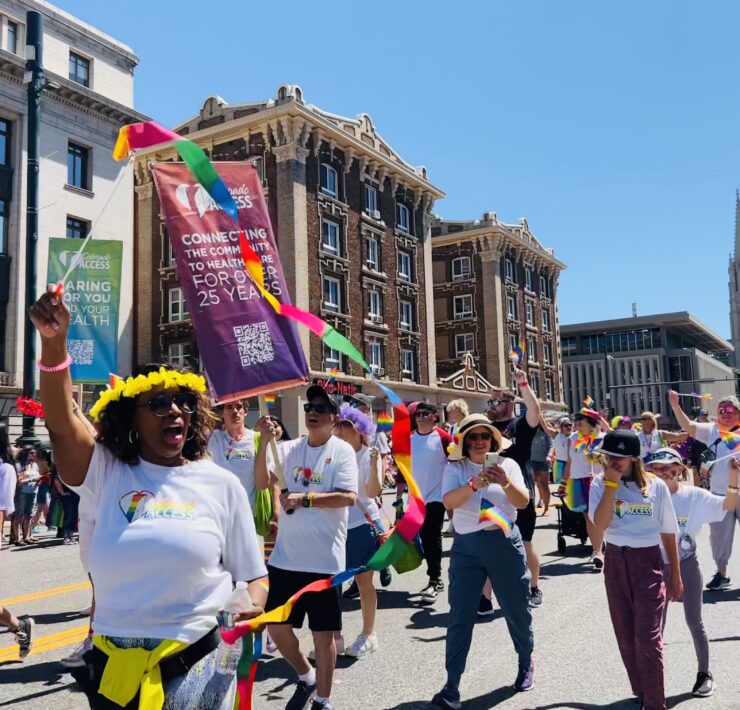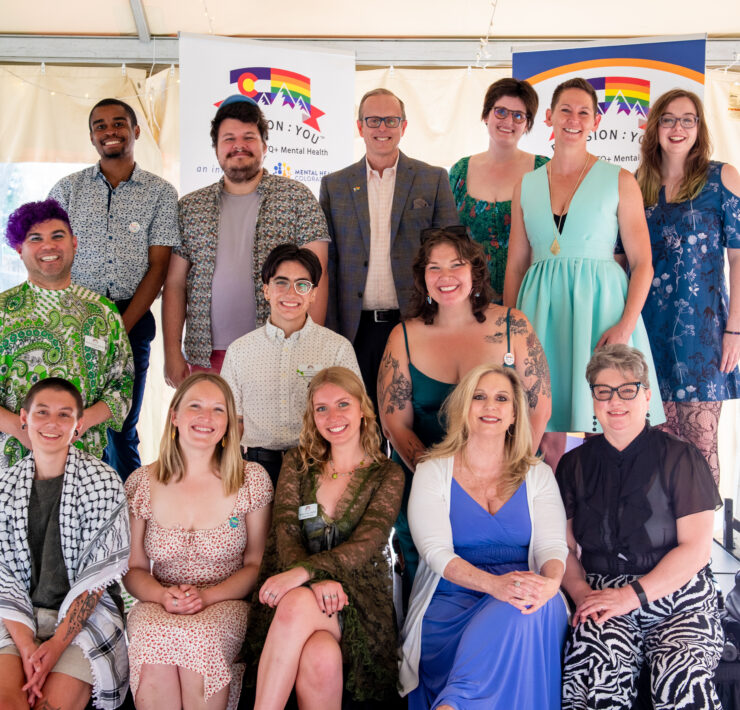Data Matters: Envision:You and OMNI Institute Release 2021 State Survey Report

What do accurate representation, policymaking, and improving healthcare practices have in common? The need for data. Without current, inclusive, and meticulously sourced data, there is no change or betterment of our communities. And when it comes to the LGBTQ+ community especially, the umbrella term for the queer community doesn’t always accurately reflect whose voices are being heard, nor does it reveal the entirety of the needs of its members. A recent survey conducted by two Colorado organizations is meant to change that for the better.
In January of this year, Envision:You released its 2021 State of the State Survey report. This report is the result of a project long in the making—a survey meticulously developed for nearly a year and a half before it was even launched—and relied on the close collaboration between Envision:You and the OMNI Institute, a nonprofit social science consultancy.
T Schweimler, a researcher at the OMNI Institute who served as the project lead, and Steven Haden, MSW and Chief Executive Officer for Envision:You, spearheaded the survey. While Envision:You handles a lot of the public awareness, advocacy, and education about mental health and the greater LGBTQ+ community, OMNI is the heavy-hitter when it comes to data.
“The partnership was natural from the beginning in terms of our commitment to social change,” Schweimler says.
The survey aimed to gather critical and often overlooked data in hopes that the results would provide new connections, detailed feedback, and anything that could help implement change in LGBTQ+ healthcare and adjacent services.
“From the beginning, we wanted to sit down with the community and understand its needs,” Haden says. “We made a commitment up front that before we even launched the survey, it was to be vetted by folks across various identities so it would be much more effective for the people who take it.”
For Schweimler, the survey data is crucial for accurately representing Colorado’s LBGTQ+ community, as is the necessary work to be done after it’s collected.
“As a researcher, you want to identify more data to raise up the voices of marginalized communities and make sure their perspectives and needs are heard and addressed,” they say.
And while Schweimler emphasizes making the research actionable, they also stress doing so in a way that’s sensitive to participants.
“It’s not just a clinical focus,” they say. “We want to hear from people and what they need. And we’re being really conscious about what people-centered research looks like: Are we practicing what we’re doing with a lens of equity and cultural relevance?”
Schweimler also notes that data is repeatedly collected from the same communities and therefore doesn’t provide a full picture or highlight areas of improvement. As a result, one of the primary goals of the survey was to ensure intersectionality was top of mind.
“In terms of the findings, one of the most significant discoveries is that it’s very clear there isn’t a single story about the LGBTQ community—Our community gets homogenized as an acronym,” they say. “We find that certain segments of the community are really underrepresented because there aren’t enough sample sizes.”
“We know, in general, there is limited data,” Haden says, pointing out that effective policy making and reform is almost entirely dependent upon extensive data, a necessity when approaching lawmakers to justify spending time and money to create new policies. When certain communities are left out of that data—whom, Haden says, often have greater needs—the policies that represent their needs simply don’t exist, as seen in trans and nonbinary communities, for example.
Trans or nonbinary people are also more at risk for suffering from mental health or substance use disorders as a result of adverse childhood experiences (referred to as ACEs)—another key finding from the data.
“Throughout the analysis and research, what we found is that the experiences of our trans and nonbinary members were a lot different,” Schweimler says. “We saw higher rates of ACEs, mental health concerns, and a higher level of disparities faced within that community.”
The ACEs data provides an essential understanding of how they shape a young person’s life and subsequently, adulthood.
ACEs can be virtually any kind of childhood trauma—from neglect to abuse to family dysfunction—and data shows they often pose lifelong risks, including increased substance abuse; suicidality; and chronic health issues like cancer, diabetes, and heart disease.
“A person’s lifespan is dramatically cut and quality of life is undermined,” Haden says. “While these instances may not necessarily be related to someone’s LGBTQ+ identity, we know that many in the community have experienced discrimination, harassment, violence, and a lack of family acceptance.”
Another major concern of survey participants is navigating healthcare; for members of the LGBTQ+ community, the preexisting struggle of finding the right provider is compounded by the need to find one who is affirming and supportive of identity.
“There was so much conversation around emotional and physical labor that folks have to do to access a basic level of care, which puts them at risk for experiencing further trauma,” Schweimler says.
Too often, this obstacle will dissuade individuals from seeking out care or make them feel obligated to educate providers on their identities and traumas—something that isn’t a patient’s responsibility.
“We want people to be able to access a nexus of care that allows them to show up as a whole person including their identity, trauma, and experiences,” they say.
While providers can claim to be welcoming to the LGBTQ+ community, they might not have the training and expertise for ensuring a positive experience.
“We’re connecting people to resources that are affirming and supporting,” Haden says. “To ensure behavioral health providers have the skills and background they need to be effective in the community.”
In fact, Envision:You developed a multiphase, 10-hour training program for providers to educate themselves and improve their ability to work with the community.
“Training is essential,” Haden says, going on to list the many steps Envision:You and OMNI will take now that they’re armed with fresh data, “advocating for new policies and state laws, having queer people at the table, educating and giving parents and caregivers information and training to be supportive of queer youth.”
“The first step is connecting with as many folks as we can, to get the data out there to those who can leverage it and look at the lists of which providers could do better,” Schweimler says.
Haden adds that dissemination and public education—from talking to people in the media to conducting community briefings—is what they’re focusing on.
“We’re currently conducting individual briefings with elected officials and policymakers about the data,” he says.
Schweimler adds, “Education is key in all of this. It’s exciting to be putting out more resources. Anyone and everyone can learn something from this report, whether it affects your personal life or professional life. And if folks want to have more conversations, we’re happy to do that.










